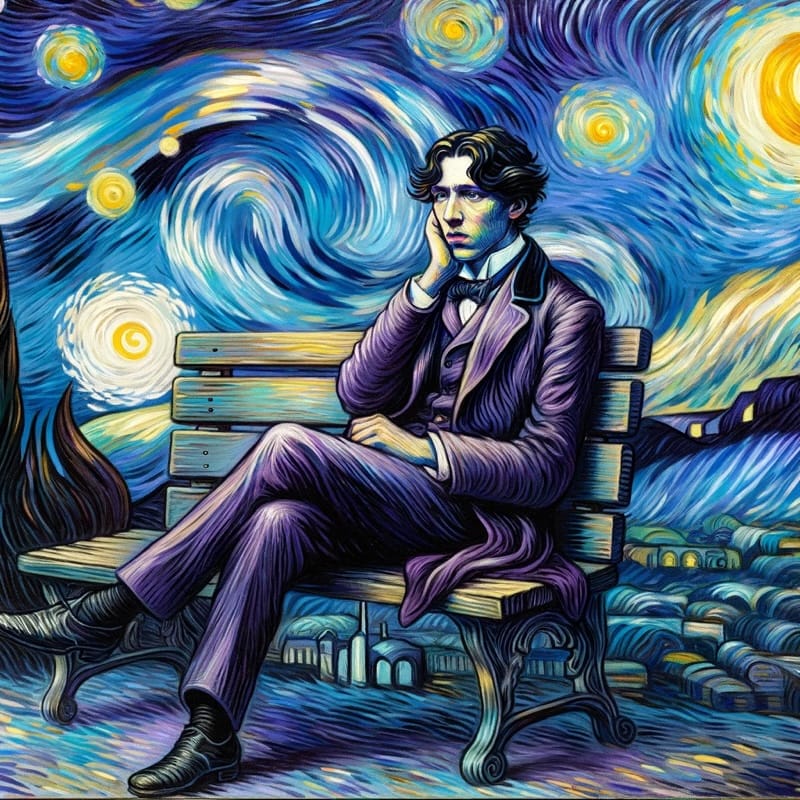The Tragedy and Triumph of Oscar Wilde: A Life Stained by Stigma

Oscar Wilde was a literary genius, a master of wit, and a man who captivated audiences with his sharp intellect and dazzling prose. However, behind his flamboyant persona and literary success lay a tragic story of social rejection, public humiliation, and personal downfall due to the stigma surrounding his homosexuality. Wilde’s life is a powerful testament to both the destructive force of societal prejudice and the resilience of the human spirit.
The Road to Fame: Wilde’s Rise as a Literary Icon
Born in 1854 in Dublin, Ireland, Oscar Wilde became one of the most celebrated playwrights and poets of the Victorian era. With works like The Picture of Dorian Gray and The Importance of Being Earnest, he redefined literature and theater with his wit and satirical brilliance. His flamboyant lifestyle and charm made him a fixture in elite social circles, where he was admired for his intellect and humor.
The Beginning of Stigma: Trials and Imprisonment
Despite his fame, Wilde’s personal life eventually became the focus of intense scrutiny. His relationship with Lord Alfred Douglas, a young aristocrat, drew the ire of Douglas’s father, the Marquess of Queensberry. In 1895, Wilde was accused of “gross indecency” under the UK’s anti-homosexuality laws.
Rather than fleeing to France as advised, Wilde took the Marquess to court for libel—a decision that backfired disastrously. The trial unearthed evidence of Wilde’s relationships with men, leading to his arrest and conviction. He was sentenced to two years of hard labor, a punishment that broke both his health and spirit.
The Effects of Stigma: Public Humiliation and Personal Loss
Wilde’s imprisonment marked the complete destruction of his social standing. Once the darling of high society, he was now a pariah. Friends abandoned him, his plays were removed from theaters, and his name became synonymous with disgrace. The physical and emotional toll of prison life left him weak and impoverished. Upon his release in 1897, he was a shadow of his former self, living in exile in France under the name Sebastian Melmoth.
Despite his suffering, Wilde continued to write, producing The Ballad of Reading Gaol, a poignant reflection on his prison experience and the cruelty of society’s moral judgments. He died in 1900, impoverished and largely forgotten by the literary elite who once celebrated him.
Lessons We Can Learn
- The Dangers of Societal Prejudice – Wilde’s story reminds us how destructive legal and social discrimination can be. His persecution highlights the need for greater acceptance and equality.
- The Cost of Conformity – Victorian society demanded rigid adherence to moral codes, punishing those who defied them. Wilde’s life is a cautionary tale about the dangers of suppressing identity for social approval.
- Resilience and Artistic Legacy – Despite his suffering, Wilde’s works remain immortal. His resilience in the face of adversity inspires us to remain true to ourselves and our creative pursuits.
- The Progress of LGBTQ+ Rights – While Wilde’s story is tragic, it serves as a marker for how far society has come in recognizing and respecting LGBTQ+ rights.
Conclusion: Wilde’s Enduring Influence
Oscar Wilde’s life, though marred by stigma and suffering, is ultimately a story of brilliance that could not be erased by societal judgment. Today, he is celebrated not just as a literary genius but also as a symbol of resilience against prejudice. His story teaches us the importance of compassion, justice, and the enduring power of art to outlast even the harshest condemnation.
His words continue to resonate, reminding us: “To love oneself is the beginning of a lifelong romance.” In embracing individuality, creativity, and truth, we honor not only Wilde’s legacy but also the many who have suffered for simply being themselves.
